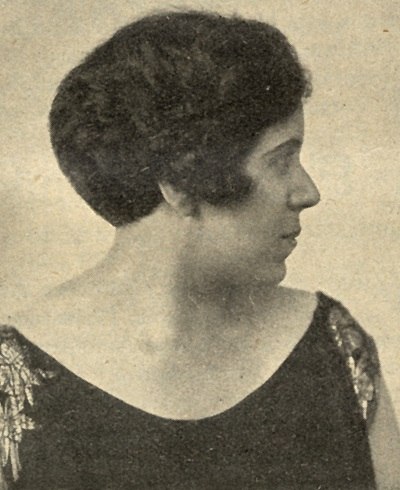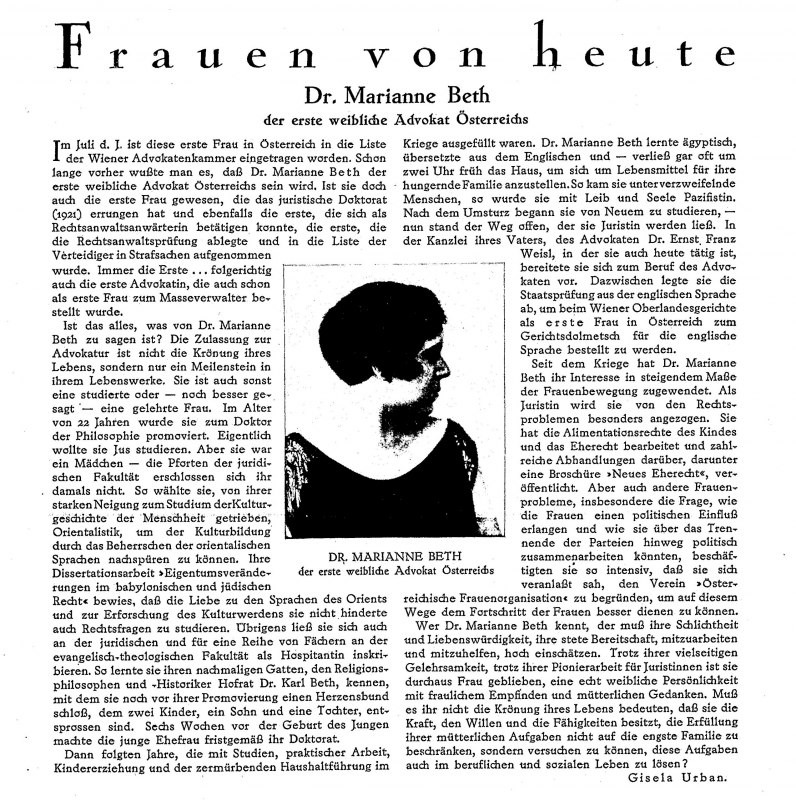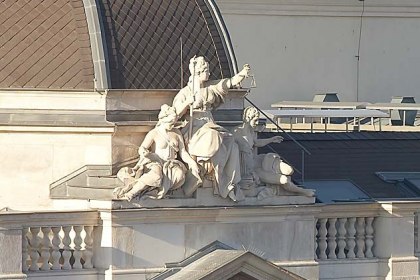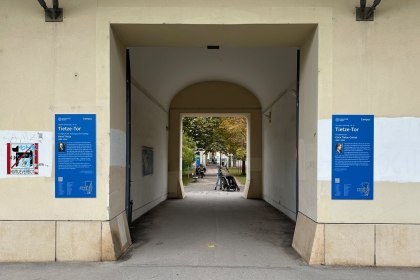Marianne Beth (geb. Weisl), Dr. phil. Dr. jur.
Honors
| Ehrung | Titel | Datierung | Fakultät | |
|---|---|---|---|---|
| Gate of Remembrance | 2023 |
|
- Legal Science
- Sociology
- Oriental Studies
- Faculty of Law and State
- Faculty of Philosophy
Marianne Beth, née Weisl, was born in Vienna in 1890 as the daughter of the lawyer Ernst Franz Weisl and the teacher Charlotte (née Michlup), graduated from high school in 1908 and began to study Oriental Studies at the Faculty of Philosophy at the University of Vienna, as women were not yet admitted to law, her first choice of study at the time. During her studies, she married the religious scholar and university professor Karl Beth (1872-1959) in 1911, who was 18 years her senior, and converted from Judaism to Protestantism. In June 1912, her son Erich was born and on November 22, 1912, she received her doctorate after her dissertation on "Property changes in Israelite and Babylonian law" was approved. Her daughter Eleonore was born in 1916 and when law studies were made accessible to women in 1919, she completed her studies in the shortest possible time and was the first woman in Austria to receive her doctorate in law on June 13, 1921.
After practising in court in 1921, she joined her father's law firm in 1922, passed the bar exam in 1924 and soon afterwards the state examination for English and was admitted as a court interpreter at the Vienna Higher Regional Court. On July 3, 1928, she was registered as a lawyer in Vienna (Austria's first female lawyer). After the death of her father in 1931, she continued to run the law firm at Schottenring 10 together with her brother Dr. Georg Weisl.
She was also involved in several associations for the Austrian women's movement, particularly in the context of legal equality for women, and was an extremely prolific publicist.
Marianne Beth held a wide range of functions: she was involved in the founding of a credit institute and a central council for intellectual workers as well as in the founding of a mothers' home. In 1927, she was the founder of the Austrian Women's Organization. In 1929, she co-founded the Austrian branch of the International Association of Working Women. She was also a member and secretary of the Society of Friends (Quakers), Secretary General of the International Bar Association, on the board of the Federation of Austrian Women's Associations and the International Association of Working Women (Austrian branch), President of the Austrian Women's Organization and President of the Soroptimist Club. She was a frequent speaker at congresses and conferences, went on national and international lecture tours and was also very active as a journalist. She was also involved in the psychology of religion and in 1930 was the first and only woman to be awarded the prize of the Berlin Kant Society for a study on the psychology of faith.
As president of the Association of Professional Women Lawyers in Austria, she organized an international conference of the Fédération Internationale des Femmes Magistrats et Advocats in Vienna in 1936. Marianne Beth advocated the unrestricted opening of all academic professions to women and the unrestricted professional activity of women, including married women.
Her works include Neues Eherecht.Eine rechtsvergleichende Studie mit besonderer Berücksichtigung der Gesetzgebung von Deutschland, der Schweiz, Österreich, (Vienna/Leipzig 1925), Dr. jur. et phil. Marianne Beth, Advokatin, Wien. In: Führende Frauen Europas. In 16 Selbstschilderungen (Munich 1928), Psychologie des Glaubens (Vienna 1930), Das Recht der Frau (Vienna 1931)
Under National Socialism, Marianne Beth was persecuted as a converted Jew, could no longer work as a lawyer or as a court interpreter and was finally removed from the list of lawyers in December 1938. Her husband, because of his marriage to her, was dismissed from the university. The family fled to the USA, where Marianne Beth no longer worked as a lawyer, but taught as a visiting lecturer in sociology and German at Reed College in Portland, Oregon, with funding from the Oberlaender Trust from 1939-42.
She then worked in a girls' children's home and contributed to several sociological and social psychology journals.
She acquired American citizenship in 1944. From 1955, she was deputy director of the Universal Translation Bureau in Chicago and then worked in the oil industry there.Her academic career came to an end under National Socialism.
She died in 1984 in Cresskill, NY (USA)
In 2021, the "Marianne Beth Prize for Safeguarding the Rule of Law in Austria" was donated by the Austrian Bar Association, and in 2023/24 the Senate of the University of Vienna decided to extend the "Gate of Remembrance" on the university campus, which was named after her husband in 1998, as part of the redesign and also to name it after Marianne Beth (Beth Gate, passageway between Spitalgasse and courtyard 1).
Zuletzt aktualisiert am 02/29/24




